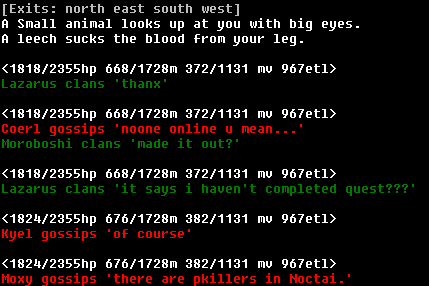11/10 - 11/12 @ Montréal, Canada
12/5 - 12/7 @ Shanghai, China
12/24 - 12/27
2/28 - 3/4 @ San Francisco, CA
More events...
2406 articles in the reference section.
Help us fight cancer!
Join SETI Team GDNet!

|
If You Bring Them, They Will TalkMulti-player computer games bring the computer game back to its seemingly abandoned parlor game roots. For most of its history (with only a few exceptions) the computer game has been exclusively single-player. This is the opposite of the "normal" game sold in stores, which is intended as entertainment for two or more players. Which means computer games are finally becoming, for the first time in their history, a means of social interaction. Today's multi-player games are a medium by which friends and acquaintances gather and spend time together. Social events require more than just a crowd, however. The people in the crowd have to talk to each other and get to know each other. Fortunately, it doesn't usually take a lot to get people to talk.  The simple urge to talk to other people and relate and share experiences is obviously a powerful draw, judging by the continued popularity of "talker" MU*'s and even Internet Relay Chat (IRC). Most talkers MU*'s are entirely text-based, driven by the role-playing descriptions (and out-of-character chatter) of the different players as they interact in the loose framework of the MU*. IRC works very much the same way, but without even the minimal structure of a talker MU*.
|
|||||||||||
|
|
|||||||||||